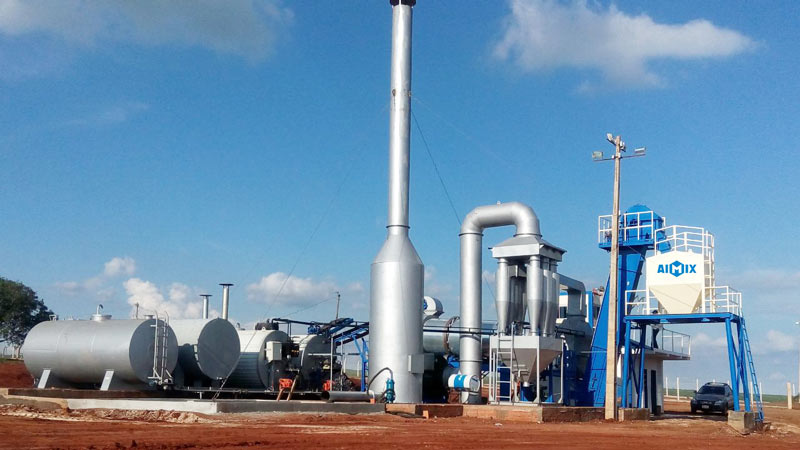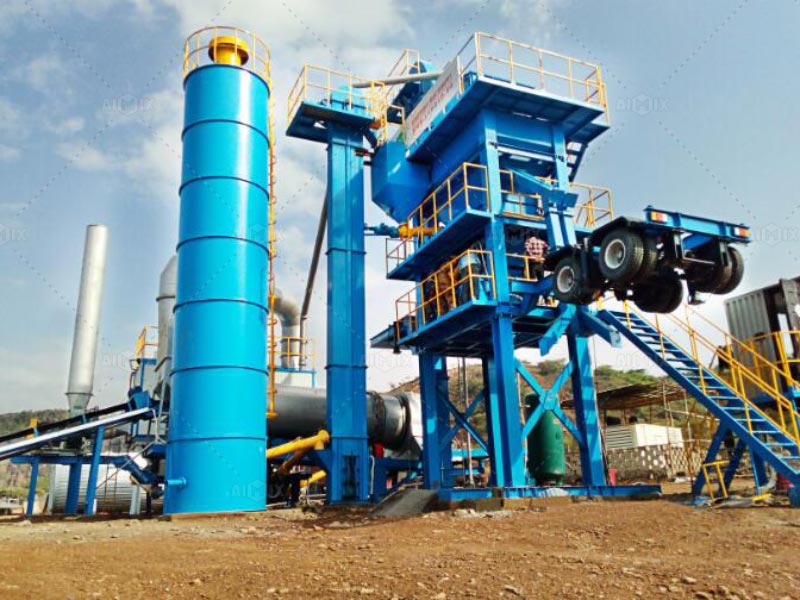Winter conditions can pose significant challenges for road and bridge construction projects. The cold weather, snow, and ice can impact the operation of construction equipment, including mobile asphalt plants. Ensuring that your mobile asphalt plant operates smoothly throughout the winter months requires proactive planning and maintenance. Proper care of the plant and its parts can reduce downtime, prevent equipment failure, and ensure that high-quality asphalt is produced despite harsh weather conditions.
In this article, we will explore some essential tips and practices to keep your mobile asphalt plant(planta de asfalto movil) running efficiently during winter.
Why Winter Conditions Affect Asphalt Plants
Winter weather conditions can affect an asphalt plant’s operations in several ways, including:
- Cold temperatures: The cold can cause delays in production as asphalt components need to be heated to specific temperatures to maintain quality.
- Frozen equipment parts: The mechanical parts of the plant, such as burners and conveyors, can freeze or become less efficient in low temperatures.
- Reduced material flow: Aggregates and bitumen may become thicker or harder to handle during freezing conditions, leading to clogged systems or inconsistent mixing.
- Increased energy consumption: To compensate for the cold, the plant will require more energy to maintain the necessary temperatures for asphalt production.
By following a few key strategies, you can minimize these challenges and ensure your mobile asphalt plant stays operational during the colder months.

Tips for Keeping Your Mobile Asphalt Plant Running in Winter
1. Pre-Winter Inspection and Maintenance
Before the winter season sets in, perform a thorough inspection and maintenance of your mobile asphalt plant. Ensuring that all systems are running optimally will prevent breakdowns and costly repairs during the colder months.
- Check the burner: Ensure the burner is functioning correctly and has no issues with fuel flow or ignition. A malfunctioning burner could prevent the plant from reaching the required temperature for asphalt production.
- Inspect the conveyor belts: Frozen or damaged conveyor belts can cause material handling issues. Check for any wear and tear, and lubricate them as necessary to ensure smooth operation.
- Examine asphalt plant parts: Ensure all critical components of the plant, including the mixer, dryer, and aggregate bins, are clean and free from damage. Any damaged parts should be replaced before winter begins.
2. Use a Reliable Fuel System
Cold weather can affect fuel viscosity, which can impact the operation of an intermittent asphalt plant(planta de asfalto discontinua). To keep your fuel system running smoothly:
- Use winter-grade fuels: Depending on your region, consider switching to winter-grade diesel or heating oil. These fuels have a lower viscosity, which ensures that they flow smoothly through the system.
- Ensure proper fuel storage: If the plant operates off-site, make sure that fuel storage tanks are insulated to prevent fuel from freezing.
- Regularly check fuel lines and filters: During winter, fuel lines can freeze or become clogged. Regularly inspect the lines and replace any filters that show signs of wear.

3. Insulate the Asphalt Plant
Proper insulation can help keep the asphalt plant components at optimal temperatures. Insulating key parts of the asphalt plant(planta aglomerado) will reduce energy consumption and prevent freezing. Focus on the following areas:
- Dryer and burner: These parts require high heat to function correctly, and proper insulation ensures that heat is retained, minimizing energy loss and keeping temperatures stable.
- Pipes and hoses: Insulate any pipes or hoses carrying bitumen or other materials to prevent them from freezing. Use heating cables or insulation blankets to keep them warm during extreme temperatures.
- Electrical systems: Ensure that electrical systems are properly insulated to avoid short circuits or power failures.
4. Keep Materials Warm
The quality of the asphalt mix is highly dependent on maintaining consistent temperatures for both aggregates and bitumen. During the winter, it’s crucial to ensure that both materials are heated properly before mixing.
- Heated aggregate bins: Consider using heated aggregate bins or storing the aggregates in a heated area before they are fed into the plant. This prevents freezing and ensures that the aggregates remain at the correct temperature.
- Bitumen storage: Insulate bitumen storage tanks to prevent the bitumen from becoming too thick and difficult to pump. Using tank heaters can help maintain the proper flow rate.
5. Maintain Proper Airflow and Ventilation
Maintaining proper airflow is essential for keeping the asphalt plant functioning in winter. In cold weather, it is common for ventilation systems to freeze or become blocked by ice and snow. Ensure that the plant’s exhaust and ventilation systems are regularly cleared to allow for proper airflow.
- Inspect ventilation ducts: Check for blockages in the exhaust and ventilation ducts caused by ice, snow, or dirt accumulation. Ensure that the airflow is not restricted, as this can reduce combustion efficiency and overall performance.
- Check air filters: Clean or replace air filters regularly to ensure that the plant is drawing in clean, dry air, which is vital for the combustion process.
6. Plan for Contingency and Downtime
Despite your best efforts, some weather conditions can still cause delays or breakdowns. It’s essential to plan for contingencies and allow extra time for any winter-related disruptions.
- Allow extra time for warm-up: Cold weather can slow down the warm-up time for the mobile asphalt plant. Allow additional time in your schedule for the plant(partes de una planta de asfalto) to reach the optimal operating temperature.
- Have backup equipment: In case of unexpected breakdowns, having backup equipment such as a secondary asphalt plant or extra burners can help keep the operation running smoothly.
- Monitor weather forecasts: Stay updated on the weather conditions to anticipate any extreme cold fronts or snowstorms that could affect the operation. Prepare your plant by scheduling regular checks and ensuring that all systems are prepared for adverse conditions.
Conclusion
Winter conditions present several challenges for mobile asphalt plants, but with careful preparation and the right strategies, you can ensure that your plant continues to produce high-quality asphalt for road and bridge construction projects. By conducting pre-winter maintenance, insulating key plant components, and keeping materials warm, you can minimize downtime and prevent costly repairs. With the proper planning, your asphalt plant can remain operational throughout the cold months, helping to keep your projects on track.